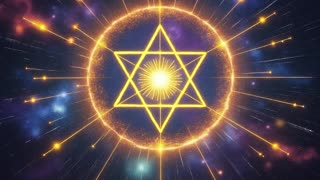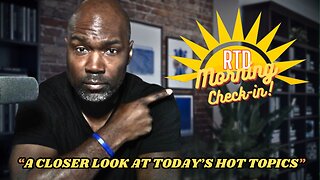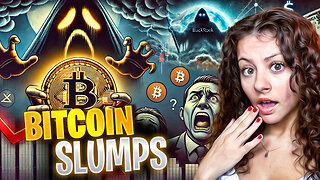Premium Only Content

The New Atlantis by Francis Bacon (1627)
The New Atlantis by Francis Bacon is a seminal work in utopian literature and a key text in the history of science and philosophy. Written in 1626 and published posthumously in 1627, The New Atlantis presents an idealized society centered around knowledge, discovery, and the advancement of science. The work is a fictional narrative that reflects Bacon’s vision for the role of scientific inquiry in society, blending elements of utopian ideals with the structure of a learned society.
The story is set on the fictional island of Bensalem, located in the Pacific Ocean. The inhabitants of Bensalem live in a society characterized by peace, prosperity, and enlightenment, all made possible through their devotion to scientific research and discovery. The island is governed by a group of wise men known as the "House of Salomon," a scientific institution dedicated to understanding the natural world through observation, experimentation, and the accumulation of knowledge.
The House of Salomon functions as the heart of Bensalem’s society, embodying Bacon’s ideal of the "scientific method." It is a place where researchers and scholars are free to explore the mysteries of nature, develop new technologies, and apply their discoveries for the benefit of society. The institution’s members are depicted as selfless, working solely for the betterment of humanity rather than for personal gain or power.
In addition to its focus on science, The New Atlantis explores themes of religion, morality, and governance. The society of Bensalem is portrayed as both spiritually devout and intellectually advanced, with a strong sense of social order, charity, and communal responsibility. Bacon’s vision of a utopia is not only a place of material progress but also one of ethical and moral integrity, where the pursuit of knowledge serves a higher purpose.
The New Atlantis is considered a key text in the development of modern scientific thought. It presents a model for the integration of science, ethics, and governance, inspiring later works that explore the relationship between knowledge and society. The House of Salomon is often seen as a precursor to modern scientific academies, such as the Royal Society, which was founded in 1660 and was influenced by Bacon’s ideas.
Bacon’s work is also notable for its allegorical and symbolic dimensions, blending elements of mysticism and esoteric traditions with his rationalist vision. Some interpretations suggest that The New Atlantis reflects Bacon’s own involvement with secret societies, such as the Rosicrucians, though this remains a topic of scholarly debate.
The New Atlantis remains an influential text, not only in literature but also in the history of scientific philosophy. It exemplifies Bacon’s belief in the potential of human reason and empirical inquiry to transform society for the better. The work has been praised for its visionary approach to science and its foresight in imagining a society where knowledge is power, but used responsibly for the collective good.
For those interested in the history of science, utopian literature, or the intersection of philosophy and society, The New Atlantis is an essential read, offering a glimpse into Bacon’s enduring vision of a world where enlightenment and progress are achieved through the dedicated pursuit of knowledge.
About the Author:
Francis Bacon (1561-1626) was an English philosopher, statesman, scientist, and author whose contributions to the development of empiricism and the scientific method laid the foundation for modern scientific inquiry. Serving as Attorney General and Lord Chancellor of England, Bacon was a major political figure, but his true legacy lies in his intellectual work, which bridged science, literature, and esoteric traditions.
Bacon’s writings, including Novum Organum and The Advancement of Learning, argued for a methodical approach to scientific investigation through observation and inductive reasoning. This approach fundamentally challenged the scholastic traditions of the Middle Ages and propelled the development of modern science. His vision was of a world where knowledge could be systematically gathered, tested, and applied to improve society—a vision encapsulated in his utopian work The New Atlantis.
1. Rosicrucianism:
Francis Bacon is often linked to the Rosicrucians, a mystical brotherhood that emerged in the early 17th century, which claimed to possess secret knowledge blending science, alchemy, and spiritual wisdom. Some researchers and esoteric scholars suggest that Bacon was either directly involved in the Rosicrucian movement or inspired its principles. The New Atlantis has been interpreted as an allegory for the ideals of Rosicrucianism, particularly in its portrayal of a society dedicated to the pursuit of hidden knowledge and spiritual enlightenment.
2. Freemasonry:
Although the official formation of Freemasonry occurred after Bacon’s death, many Masonic historians and scholars speculate that Bacon’s influence was instrumental in shaping its early structure and philosophy. Some even consider him the "founder" or guiding spirit behind early speculative Freemasonry, citing his emphasis on knowledge, symbolism, and moral philosophy as aligned with Masonic principles. His intellectual legacy is said to have informed the development of Masonic rituals, particularly those relating to the search for truth and the betterment of humanity.
3. The Order of the Helmet:
Bacon is rumored to have founded a secret literary society called the "Order of the Helmet," dedicated to the protection and promotion of esoteric knowledge and literature. This group, supposedly comprised of intellectual elites, is said to have operated in secrecy, exploring the deeper meanings behind classical texts, philosophy, and spiritual practices.
4. The Shakespeare Authorship Debate:
One of the most enduring theories surrounding Bacon is the claim that he was the true author of the works attributed to William Shakespeare. Proponents of this theory argue that Bacon’s vast knowledge, literary skill, and involvement in secret societies gave him the resources and motivation to write the plays and sonnets under a pseudonym. They suggest that hidden codes and allegories within Shakespeare’s works reveal Bacon’s authorship and his connection to esoteric traditions.
Francis Bacon’s influence extends beyond his contributions to science and literature; he is revered in various esoteric and mystical traditions for his visionary ideas on knowledge and enlightenment. His works are considered foundational texts for those studying the intersection of science, spirituality, and secret societies. Whether as a scientist, philosopher, or esotericist, Bacon’s intellectual endeavors were consistently aimed at uncovering the hidden truths of the universe, making him a key figure in the history of Western esotericism.
Bacon’s legacy is both celebrated and shrouded in mystery, with his influence resonating in Freemasonry, Rosicrucianism, and beyond. His vision of a world united by the pursuit of knowledge and truth continues to inspire those in both scientific and mystical fields.
-
 3:59:19
3:59:19
Deus Meum Que Jus
2 months agoThe Kybalion: A Study of the Hermetic Philosophy of Ancient Egypt and Greece By: The Three Initiates
807 -
 LIVE
LIVE
The Dan Bongino Show
4 hours agoTrump Is Setting The Old World Order Ablaze (Ep. 2414) - 02/03/2025
155,577 watching -
 LIVE
LIVE
The Rubin Report
59 minutes agoJD Vance Makes Host Go Quiet with This Brutal Warning for These Major Countries
4,791 watching -
 LIVE
LIVE
Steven Crowder
2 hours ago🔴 Why Trump & America Will Dominate the Global Trade War
46,443 watching -
 DVR
DVR
vivafrei
14 hours agoLive with "Bitcoin Jesus" Roger Ver - the Indictment, Law-Fare and the War on Crypto
60.6K7 -
 LIVE
LIVE
Bannons War Room
1 year agoWarRoom Live
32,432 watching -
 LIVE
LIVE
LFA TV
22 hours agoTARIFF TRADE WAR! | LIVE FROM AMERICA 2.3.25 11am
4,766 watching -
 LIVE
LIVE
Caleb Hammer
1 hour agoProfessional Redditor Treats His Wife Like A Pet | Financial Audit
241 watching -
 36:07
36:07
Rethinking the Dollar
55 minutes agoMonday Morning Check-In | Tit-for-Tat Trade Wars: Why Gold Is Still Winning
-
 56:02
56:02
Randi Hipper
1 hour agoBITCOIN AT CRITICAL LEVELS AS MARKET CRASHES! LATEST PRICE UPDATE HERE
3.99K1